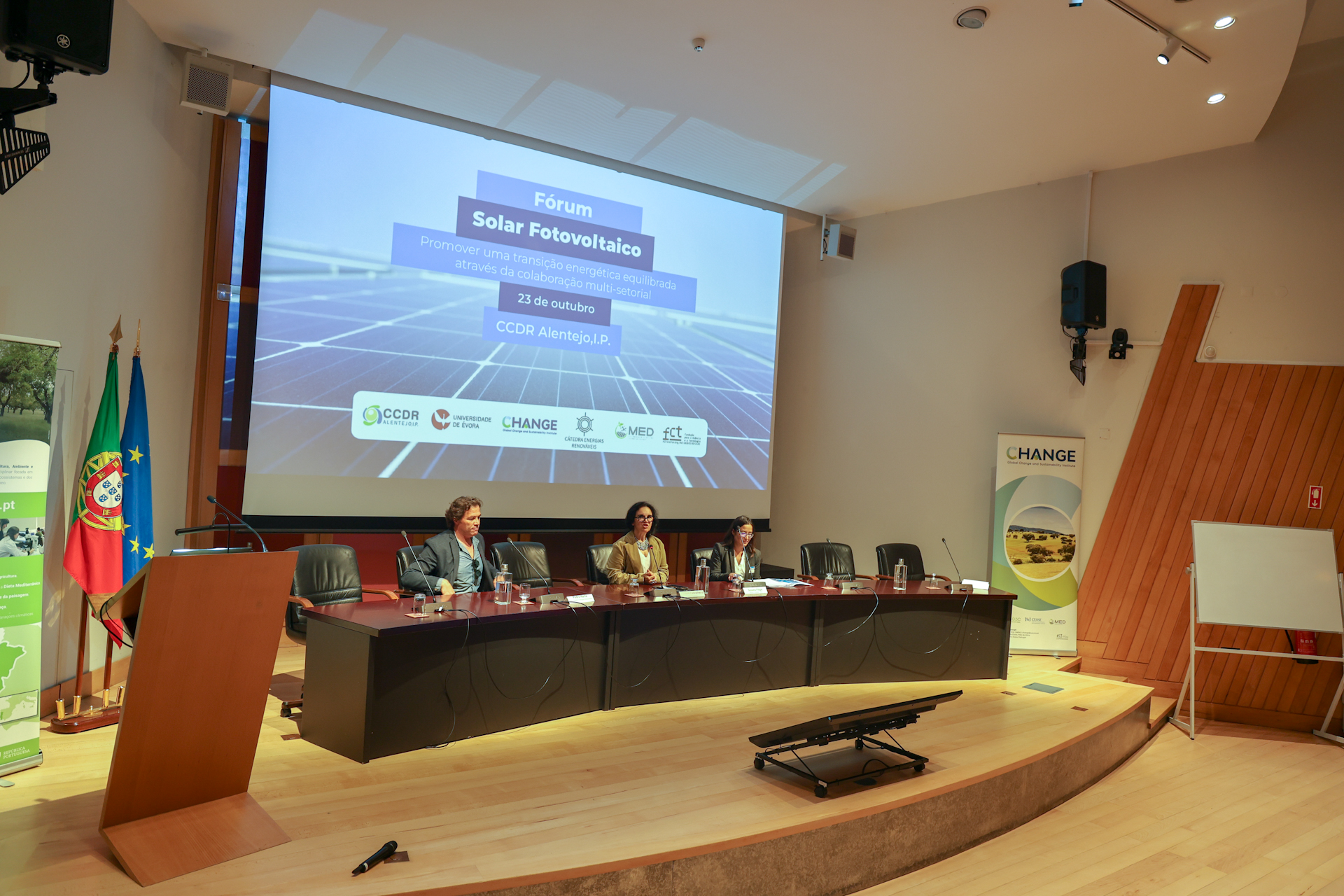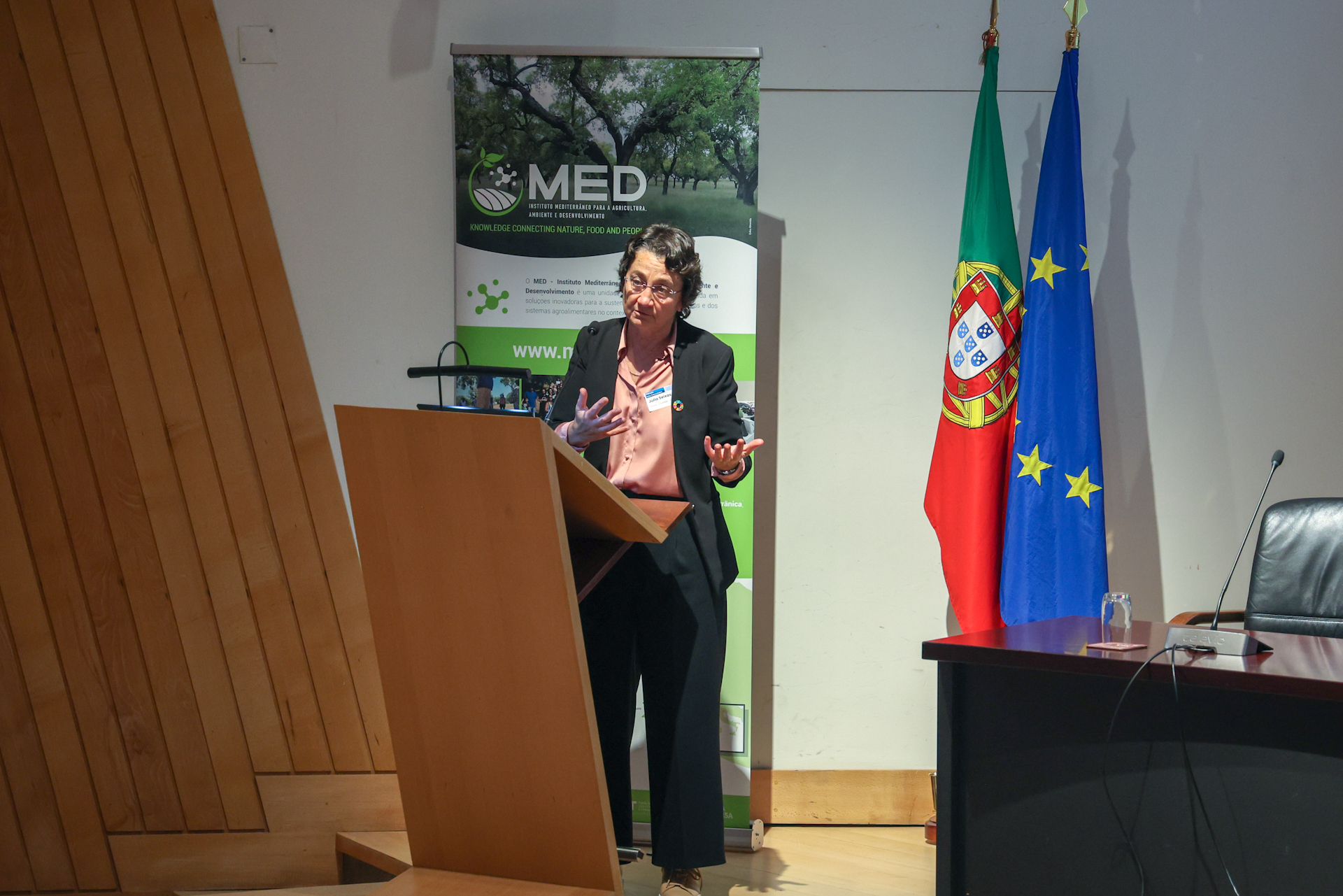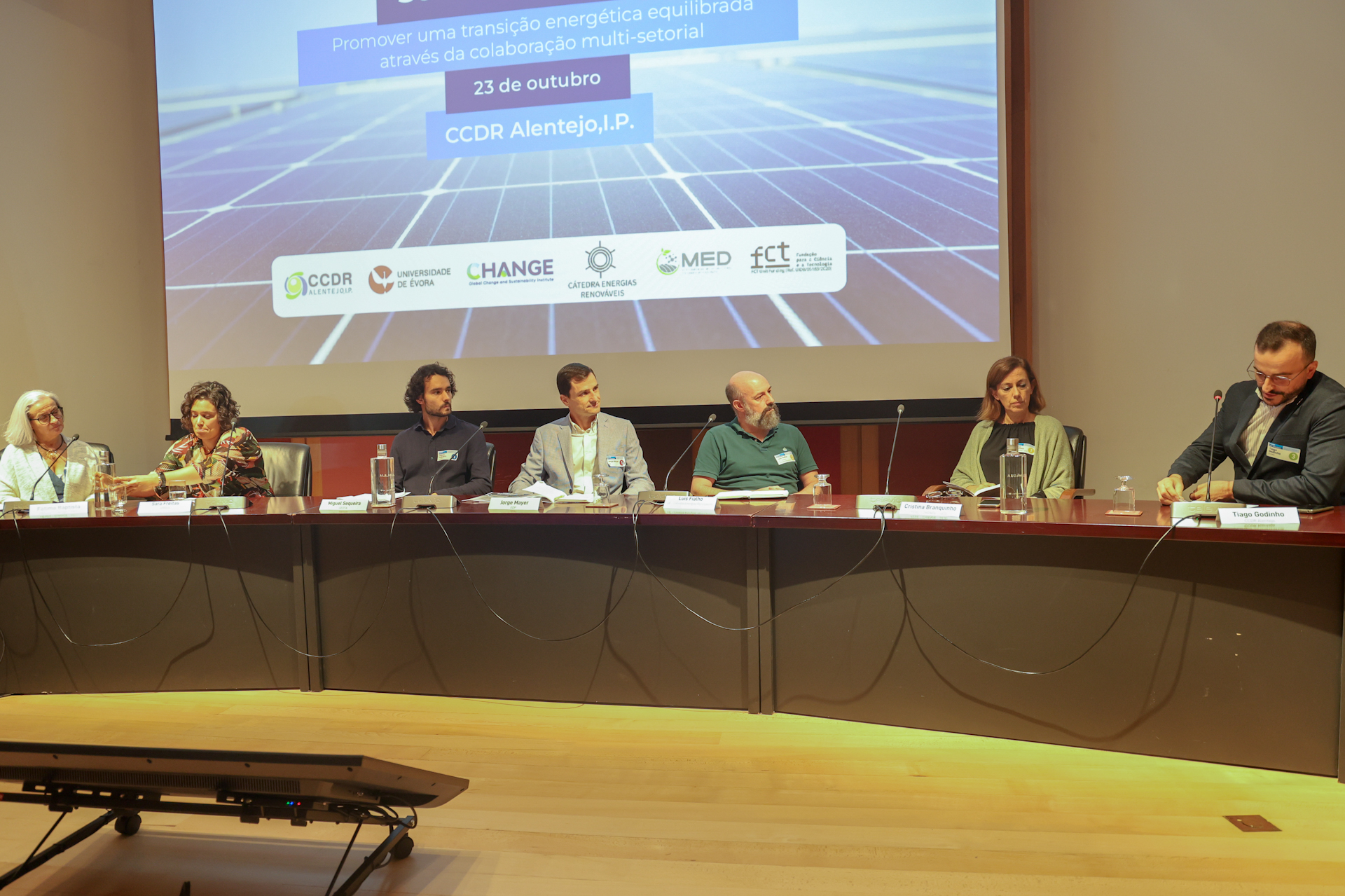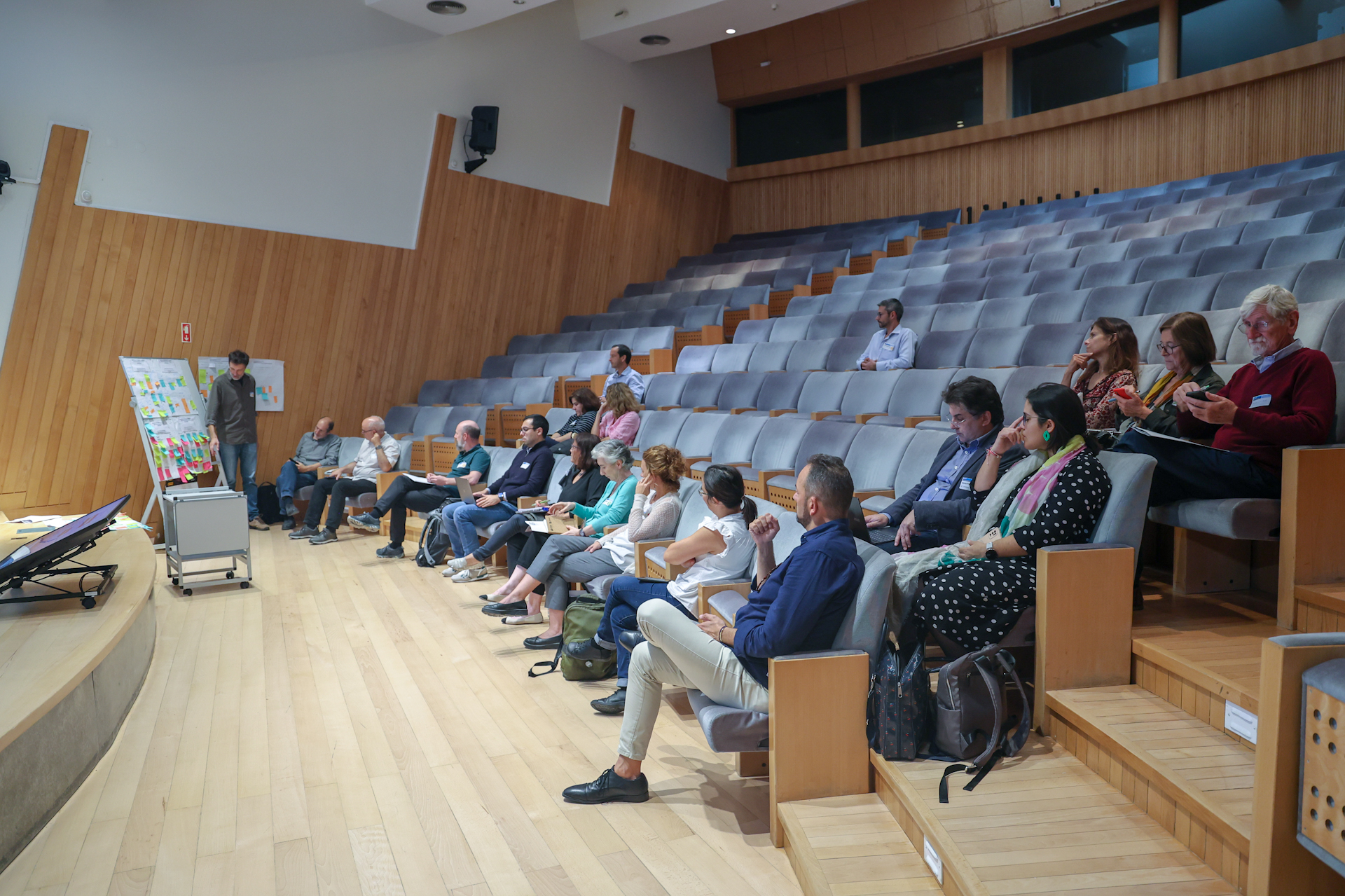Academia, public administration, the private sector and civil society discussed the energy transition at the Solar Photovoltaic Forum
On October 23rd 2024, the event Solar Photovoltaic Forum: promoting a balanced energy transition through multi-sector collaboration took place, promoted by the Associate Laboratory CHANGE, coordinated by the MED of the University of Évora, in co-organisation with the Alentejo Regional Coordination and Development Commission, IP and the Renewable Energy Chair of the University of Évora.
The event, which took place at the headquarters of CCDR Alentejo, IP in Évora, brought together 40 guests from various sectors (Academia, Public Administration, NGOs, Associations and Energy Sector Promoters) and focused on the importance of using an integrated, multi-sector approach to implementing photovoltaic plants, addressing environmental, social and economic challenges and opportunities.
From the various moments of the event (plenary session, round table and participatory workshops), key issues were highlighted, such as the importance of the participation and coordinated work of decision-makers, academia, the private sector and the involvement of civil society from the outset of projects to install photovoltaic plants. The importance of following up and monitoring the impacts of installing centralised photovoltaic systems (from the point of view of conserving and restoring nature and natural resources, as well as socio-economic impacts) and strengthening knowledge in this area were also highlighted. The need to adapt and create policy instruments and mechanisms (monitoring and evaluation committees, etc.) adapted to the energy transition needs, ecological restoration and nature conservation, integrated land management and social justice were also identified.
At the opening of the event, Carmen Carvalheira (Vice President of CCDR Alentejo, IP), Pedro Horta (Chair of Renewable Energies at UÉ) and Susana Filipe (Executive Director of the CHANGE Associated Laboratory) emphasised the need for partnerships and discussion between multiple players, from academia, NGOs, associations, public administration and the private sector, to define the essential aspects for realising a balanced energy transition that serves everyone, that meets the challenges of mitigating environmental impacts, that takes into account the balanced and integrated management of the territory, as well as the preservation and restoration of ecosystems and their associated services, and all the relevant social and economic aspects.
In her presentation ‘The Sustainability of the Energy Transition in Portugal’, Júlia Seixas (Professor at NOVA/FCT, Researcher at CENSE/CHANGE and Pro-Rector for Sustainability at NOVA) contextualised the energy needs and targets set for the energy transition in Portugal by 2030. In her speech, Júlia Seixas reiterated the importance of the social aspect in the integrated and sustained development necessary for the energy transition and the importance of co-participatory management of the development and implementation processes of renewable energies, in the current context of climate change.
In their speech focusing on the ‘Challenges and opportunities of implementing energy production and storage centres located on rural land in the Alentejo’, Sara Rodrigues and Joana Dourado (CCDR Alentejo, IP) referred to the need for reflection and awareness of the relevant factors to consider when defining land-use planning criteria for the installation of photovoltaic electrical production centres. They listed a series of possible qualitative and quantitative criteria that could optimise land use while safeguarding the protection of natural and heritage resources.
The round table discussion, which included Cristina Branquinho (cE3c/CHANGE/FCUL), Luis Fialho (Chair of Renewable Energies, UÉ), Jorge Mayer (EDP), Miguel Sequeira (GEOTA), Sara Freitas (APREN) and Fátima Baptista (MED/CHANGE /UÉ), focused essentially on the need to optimise technology, territory and infrastructures to maximise the positive effects of installing solar energy, exploring, leveraging and developing concepts such as agrivoltaics and ecovoltaics, energy decentralisation and energy communities.
Following this event, and based on the discussions held both in the plenary sessions and in the participatory workshop that followed a Policy Brief will be drawn up with specific recommendations for political instruments and governance that can serve as a basis for the integrated implementation of photovoltaic plants that are suited to the territory, especially the Alentejo, which is under high pressure to implement these plants, while at the same time ensuring compliance with the renewable energy transition targets set for Portugal.



